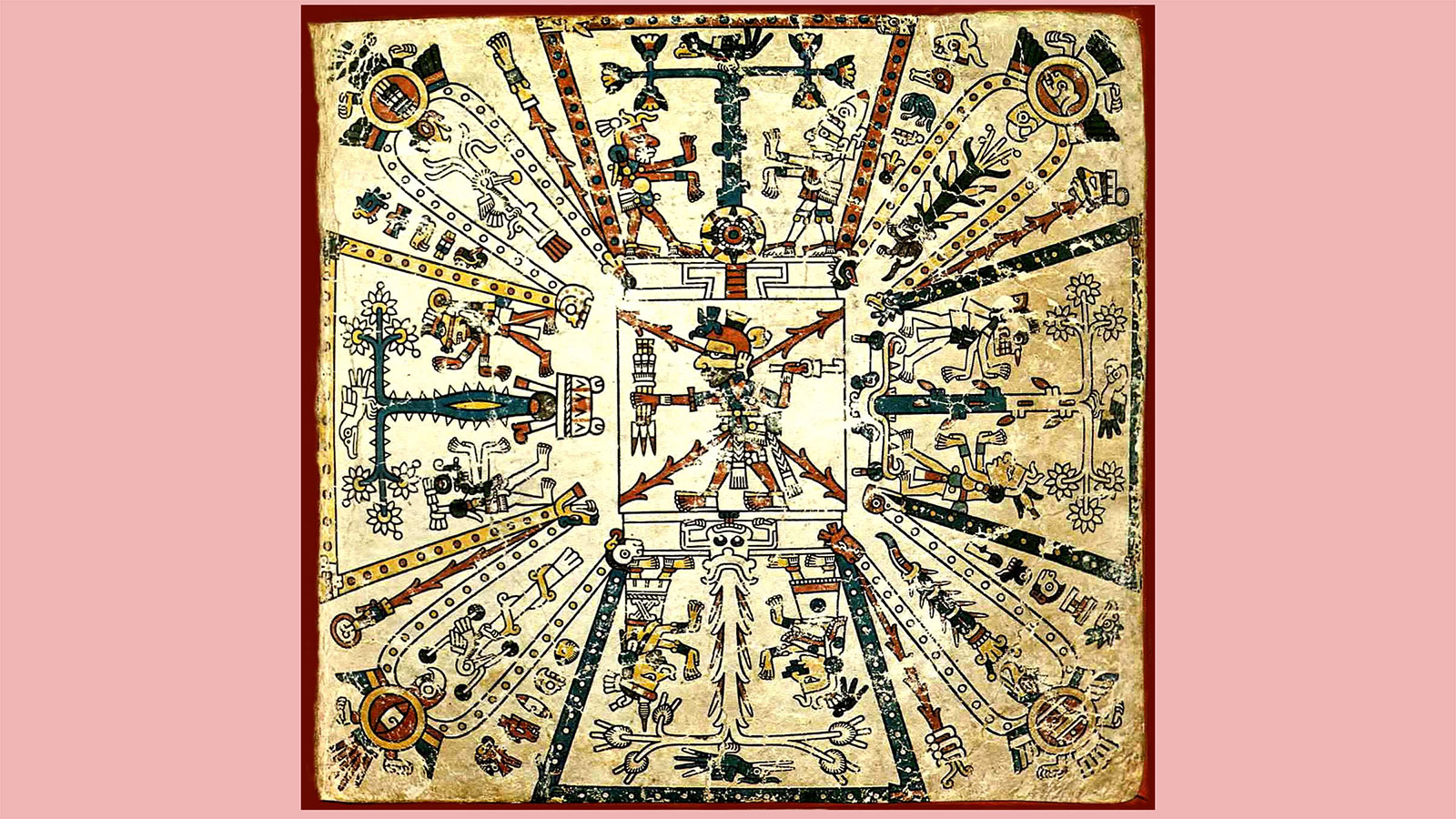
From the Codex Fejérváry-Mayer, an Aztec cosmological drawing with the god Xiuhtecuhtli, the lord of fire, and the calendar in the center with the other important gods around him, each in front of a sacred tree. Image courtesy of Creative Commons
(RNS) — Three San Diego parents, along with a nonprofit group that has advocated against critical race theory, are suing the California Department of Education, claiming its model ethnic studies curriculum promotes Aztec gods or deities.
The Californians for Equal Rights foundation filed a complaint in April against the San Diego Unified School District, claiming that training materials “force teachers to adopt CRT practices in their own classrooms.”
Now the San Diego-based group — created to push back on “legislative attempts that would reinstitute racial and gender preferences in government programs” — is arguing that the state’s new ethnic studies curriculum violates the religious clauses of the state constitution that require “even greater separation of church and state.”
The lawsuit, filed Friday (Sept. 3) in San Diego County Superior Court, calls for the state to withdraw a purported Aztec prayer from the curriculum, which is not mandated.
RELATED: Religious, ethnic minorities grapple over California’s model ethnic studies curriculum
The suit comes just days after Robert E. Weisenburger, one of the attorneys representing the plaintiffs, signed an Aug. 26 letter urging State Superintendent Tony Thurmond and Keith Yamanaka, general counsel for the California Department of Education, to remove the curriculum’s alleged prayer.
“The fact that the Aztec religion is not formally organized and is non-Western in its origin does not excuse the constitutional violations,” Weisenburger wrote.
“Our clients have a religious objection to the Aztec prayer and they do not want their children chanting the Aztec prayer, being asked or pressured to do so, or risking ostracism if they refuse,” he added.
Scott Roark, a spokesman for the California Department of Education, said the department “has not reviewed the lawsuit” and that it could not “offer up comment at this time.”
The lawsuit stands against the “Affirmations, Chants, and Energizers” that the ethnic studies curriculum states educators can use “to bring the class together, build unity around ethnic studies principles and values.”
These affirmations include the Mayan principle called In Lak Ech, which translates into “you are my other me,” and according to the curriculum, embodies “love, unity, mutual respect.” The lawsuit refers to the affirmation as an “Aztec prayer.”
In the same section of affirmations and chants, there is a poem by Chicano playwright Luis Valdez about In Lak Ech: “Tú eres mi otro yo. You are my other me. Si te hago daño a ti, If I do harm to you, Me hago daño a mi mismo. I do harm to myself. Si te amo y respeto, If I love and respect you, Me amo y respeto yo. I love and respect myself.”
It also includes a longer adaptation that explores the Aztec concept of Nahui Ollin, or the Four Movements. The chant references the Aztec deities Tezkatlipoka, Quetzalkoatl Huitzilopochtli and Xipe Totek.
Nolan L. Cabrera, associate professor of education at the University of Arizona, said a big part of Chicano studies is “trying to disrupt the myth that Chicano students are in some way foreign to this land.” This includes learning about different Indigenous traditions, he said.
To Cabrera, it is “asinine to think that they’re trying to establish the Aztec religion” as part of the curriculum.
“In the bigger picture, it seems more like an extension of the concerted attacks on ethnic studies. This is just a new way of going about it,” Cabrera said. “It really doesn’t have a lot of merit in it. This doesn’t represent how Chicano studies is taught in any meaningful sense.
“This is about a culturally affirming, culturally restoring education practice that also has the impact of being incredibly effective, especially for Chicano students who are exposed to it,” Cabrera said.
The lawsuit was filed by attorneys from the Thomas More Society and LiMandri & Jonna LLP, who in July sued the San Diego Unified School District for removing the Rev. Junípero Serra’s name from one of its high schools.




